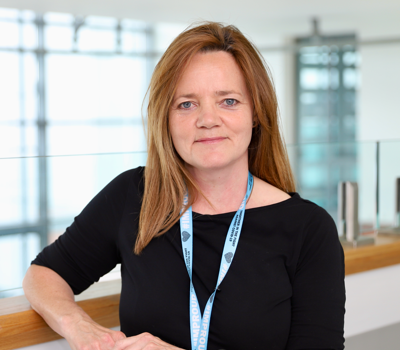Health & Social Care Research Across North East & North Cumbria.
Dementias and Neurodegeneration (DeNDRoN)
Dementias and Neurodegeneration (DeNDRoN)
The Dementias and Neurodegeneration specialty covers four neurodegenerative diseases - dementia, Parkinson's disease, Huntington's disease and motor neurone disease, each with a sub-specialty lead. We work across our region to help support the delivery of our research.
How to get involved
Research stories from our region
What's happening in DeNDRoN research?
Dementia
- early, accurate diagnosis of dementia with Lewy bodies, particularly in prodromal stages
- understanding of the Lewy body disease course and potential modifiers
- understanding of the pathophysiology of key Lewy body disease related symptoms
- novel biomarkers for tracking Lewy body disease in terms of prognosis, predicting dementia conversion and response to treatment
- trialling of dementia with Lewy bodies specific interventions
- the role of frailty, sarcopenia and delirium in Lewy body disease.
We also run many of our clinical trials in dementia via the Clinical Ageing Research Unit in Newcastle.
Motor Neurone Disease
Motor neurone disease, a rare neurodegenerative condition, impacts the brain and nervous system. Although motor neurone disease is ultimately a fatal disease, thanks to research and innovation, many patients with motor neurone disease continue to live with their condition for many years, maintaining a quality of life. Research has allowed new drugs to be trialled, as well as new diagnostic and monitoring techniques for those in the early stages of the disease.
Dr Timothy Williams (consultant neurologist and regional motor neurone disease care centre director) is the regional medical lead and principal investigator for motor neurone disease research. If you are interested in working with Tim to support research, please get in touch, the regional motor neurone disease research centre is based at the Royal Victoria Infirmary in Newcastle.
Huntington's disease
Huntington’s disease, a hereditary condition, is a disease that damages nerve cells in the brain, impacting on a patient’s movement, cognition and mental health. Huntington’s disease cannot be cured, however, there are studies that endeavour to establish the underlying genetic cause of the disease, as well as treatments that manage the symptoms to allow those living with Huntington’s to enjoy a quality of life.
Dr Suresh Komati leads research activity as a principal investigator into Huntington’s disease across the North East and North Cumbria, working in collaboration with the Clinical Research Network.
Helpful resources
Was this page useful?
Add your feedback
There was an error submitting your feedback, please try again.
Thanks for your feedback, this will help our team improve your experience on the website



















